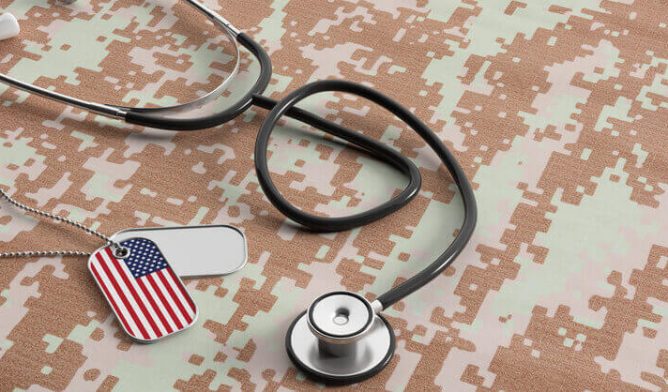Mesothelioma Presents Different Challenges for Veterans
Veterans & MilitaryWritten by Aaron Munz | Edited By Walter Pacheco

A veteran with mesothelioma cancer is different than a civilian with mesothelioma because of the two different systems veterans need to navigate.
Veterans may have access to both civilian and VA medical systems as well as compensation options from the VA and civilian legal systems.
This makes connecting early in the process with specialists who understand military service and asbestos exposure so important.
A specialist in both medical issues and benefits is necessary to ensure the best mesothelioma treatment and access to all resources for veterans and their families.
We have known for many years in the United States that veterans have had more exposure to asbestos. There is a higher percentage of veterans with mesothelioma than would be expected in the general population.
Military veterans comprise just 7% of the American population, but an estimated 30% of those are diagnosed with mesothelioma each year.
UK Studies Veterans with Mesothelioma
A recent study from the United Kingdom confirmed the same for UK vets. It again highlighted the need for them to connect with a specialist like me who better understands military exposure to asbestos and what might be available to them and their families.
The study confirmed the types of exposure they have had, often different than what a civilian is facing. It also confirmed the kind of mindset we often see in veterans.
I’ve talked with thousands of veterans over the years, and there often is a reluctance to share their experiences with family members and medical professionals who are not veterans themselves. They keep things bottled up inside.
The majority of veterans diagnosed with mesothelioma are men, and men typically approach any type of serious health concerns differently than women.
Most veterans with asbestos-related diseases are from blue-collar backgrounds. They approach doctors differently. It’s a combination of factors, but they mostly fall into the category of work with your hands, solve your own problems, don’t ask for help.
Completing the Mission Is the Priority
These veterans focus on getting the mission done and don’t complain about their own aches and pains. It’s a military mentality that has a lot of carryover into blue-collar work as well. Much of that was reflected in the recent study.
Because of the latency period between exposure and asbestos-related diseases, there may be less of an understanding of the dangers. Nobody in the military questions if what they are doing is dangerous. You kind of assume that everything you do is dangerous. That’s why you are there.
You just do it to accomplish the mission, or complete your assigned task, and not ask a lot of questions about personal safety.
That may have exposed veterans to more asbestos than in a civilian job, where you had a choice to complete it or not. In the military, you’re just going to get it done.
The study touches on a lot of this. The vet who gets sick often doesn’t want to deal with burdening the family, spending money on treatment or depleting what would be available for his wife.
Connecting Veterans with Experts Is Key
So for me, the biggest takeaway from the study was the need for vets to connect with people who understand veterans benefits and the legal side of it all.
It also helps them understand what they were exposed to, so if they start experiencing breathing issues or other health problems they will know how to talk to the doctors about it.
It’s also so important for veterans to see a medical specialist who understands military exposure so they can get an accurate diagnosis.
There was nothing really groundbreaking in the study, but referencing a new study likes this provides a fresh face on the topic.
It reinforces a lot of what we already know, and reminds veterans about the need for an early diagnosis and getting access to mesothelioma specialists who understand the early stages of the disease.
It was right on the mark. Veterans often have a different perspective.






